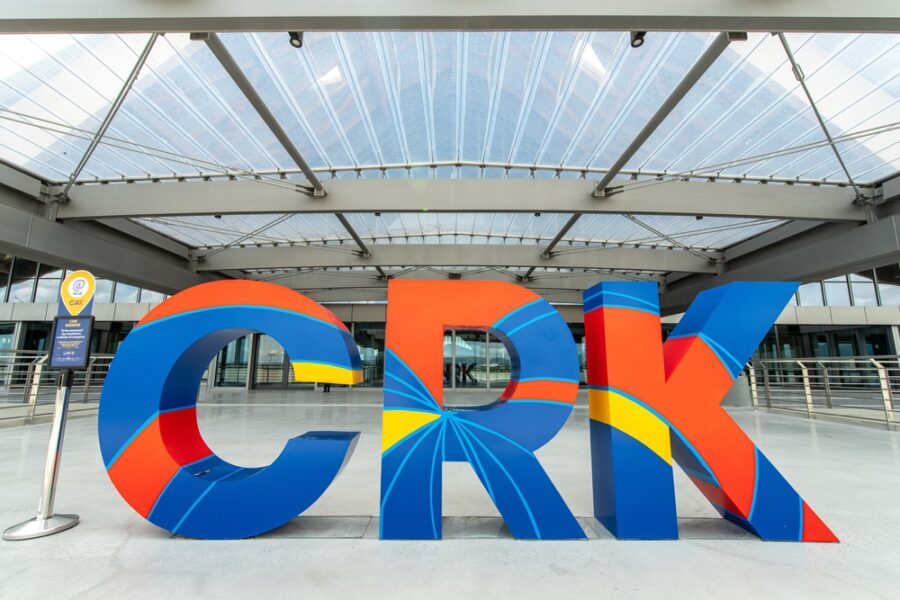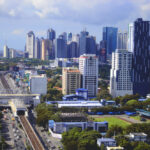Seven South Koreans arrested in Philippine illegal gambling operation

Seven South Korean nationals have been arrested by the Philippine Bureau of Immigration for allegedly operating an illegal online gambling scheme inside the Clark Freeport Zone, a site once associated with Philippine Offshore Gaming Operators, or POGOs.
Bureau of Immigration Commissioner Joel Anthony M. Viado confirmed the arrests on Sunday, saying the government remains firm in enforcing President Ferdinand Marcos Jr.’s July 2024 ban on all POGO operations and that violators of the ban would face arrest and deportation.
He added, “We will not allow foreign nationals to continue online gaming activities in the Philippines.”
The Bureau of Immigration’s Fugitive Search Unit conducted the raid on October 13 after receiving reports of a South Korean fugitive operating in the area.
Although the fugitive was not found, agents discovered seven men allegedly managing workstations connected to illegal betting platforms linked to global sporting events.
Among those arrested was Ha Dong Jun, 23, who has been on the Bureau of Immigration’s wanted list since January 2025 for failing to leave the country following the POGO shutdown.
The Bureau of Immigration said the group appeared to be involved in small-scale illegal operations posing as legitimate online businesses.
All seven suspects are now in Bureau of Immigration custody pending deportation proceedings.
Earlier in the month, nine South Koreans were also arrested in Cebu City for running an alleged online gambling operation.
Abi Bray brings strong researching skills to the forefront of all of her writing, whether it’s the newest slots, industry trends or the ever changing legislation across the U.S, Asia and Australia, she maintains a keen eye for detail and a passion for reporting.
Verticals:
Sectors:
Topics:
Dig Deeper
The Backstory
Inside the post-ban crackdown
Philippine authorities have moved from policy to enforcement since President Ferdinand Marcos Jr. announced a freeze on new online gaming licenses in July 2024 and imposed a full shutdown effective Jan. 1, 2025. That posture is reflected in a series of raids, arrests and policy proposals targeting both local operators and transnational networks that exploited the country’s permissive era of Philippine Offshore Gaming Operations, or POGOs. Enforcement agencies have framed the clampdown not as a discrete sweep but as a continuing effort to collapse remaining hubs, prosecute facilitators and repatriate foreign suspects connected to illegal betting and cyberfraud. The through line: investigators say illegal operators adapted quickly to the ban, fragmenting into smaller cells and masking activity as legitimate online businesses while tapping cross-border infrastructure to keep platforms live. The backstory shows how those shifts prompted coordinated police work, cybersecurity probes, financial tracking and renewed debate in Manila over whether deportation is enough to deter repeat offenders.
A pattern of arrests beyond Clark
Even before recent raids, police were developing leads from worker complaints and local tips. In Cebu City, the Philippine National Police arrested nine Korean nationals tied to an alleged igaming ring after an investigation opened Aug. 8 with an employee grievance alleging illegal detention and wage withholding. Authorities later added counts under Presidential Decree 1602 and the Cybercrime Prevention Act of 2012. Five suspects carried Interpol Red Notices, underscoring the cross-border nature of the case. The operation, detailed in the Cebu arrests account, ended with five held by the Regional Special Project Unit and four in the Cebu City Custodial Facility. Weeks later, a separate Manila-area raid dismantled a suspected betting shop in Quezon City, where cybercrime officers, the Philippine Charity Sweepstakes Office and local police seized devices and opened cases under the same anti-illegal gambling and cybercrime statutes. That action, reported in the Quezon City enforcement sweep, illustrates how probes are now widening from freeport enclaves to urban neighborhoods where smaller teams try to stay mobile.
Why POGOs morphed into a regional problem
The policy pivot in Manila arrived after years of mounting evidence that POGO-linked outfits had diversified into scams, money laundering and trafficking, using the Philippines as a base for operations aimed at overseas bettors and victims. That spillover has drawn attention from South Korean and ASEAN authorities and refocused investigations on the online supply chain: domain brokers, payment channels and technical administrators who monetize platforms and sell access to operators for a fee. In one case described by prosecutors in Seoul, a South Korean man allegedly worked with North Korean hackers to sell 71 domains tied to 16 illegal gambling sites, generating as much as $936,000 in proceeds and funneling a significant share to Pyongyang over three years. The case, outlined in the North Korea-linked domain scheme, highlights how illicit gambling revenues can finance sanctioned regimes and why law enforcement views online betting as a vector for broader cyberthreats. The Philippines has also featured in South Korea’s largest repatriation of criminal suspects, with 49 people sent home on accusations ranging from online casino operations to fraud, a reminder that post-ban enforcement has international dimensions.
Regulators tighten the digital perimeter
As police chase brick-and-mortar nodes, regulators abroad are restricting access to illegal gambling portals that target their citizens. Australia’s media watchdog has used site blocking since 2019 to cut off unlicensed casinos and affiliate networks, escalating orders this year to disrupt operators seen as ignoring warnings. In its latest move, described in the Australian site-blocking update, the Australian Communications and Media Authority directed internet service providers to block seven additional sites in breach of national law, bringing total blocks into the thousands and pushing hundreds of services to exit the market since 2017. The agency warns that unauthorized sites lack consumer protections and increase fraud risk, a concern mirrored by Philippine officials who say illegal gambling siphons funds from state-backed health and charity programs. The dual track — local arrests and offshore access controls — reflects a recognition that online gambling economies are geographically diffuse, and that disrupting demand and infrastructure can be as important as physical raids.
Policy debate shifts to deterrence, not deportation
In Manila, the enforcement wave has revived debate over whether existing penalties deter repeat offenders or merely reset the cycle. Senate Deputy Minority Leader Risa Hontiveros, a longtime critic of POGOs, is pushing an Anti-POGO Act to strengthen the ban and close loopholes that allow operations to reconstitute under new fronts. In her latest proposal, Hontiveros argues that simple deportation may be inadequate for foreign suspects and calls for coordinated ASEAN action with partners in the United States, Australia and Europe to dismantle scam hubs and protect trafficking victims. She also backs using the Bali Process framework to ensure exploited workers are treated as victims, not criminals, while going after organizers who profit from cross-border cybercrime. The policy stakes are high: lawmakers want to prevent the Philippines from becoming a revolving door for online gambling syndicates, while safeguarding legitimate online commerce that can be misused as cover. That calculus is shaping how agencies prioritize cases, preserve digital evidence and work with foreign counterparts on extraditions and asset freezes.
The stakes for enforcement and the economy
The crackdown’s trajectory suggests authorities are targeting three fronts at once: operators who stayed after the ban and run smaller shops; cross-border technical brokers who keep sites online; and financial networks that launder proceeds. Cases in Cebu and Quezon City show how community complaints and agency coordination can surface hidden operations. Regional moves in Australia and prosecutions in South Korea demonstrate that illegal betting’s infrastructure extends well beyond Philippine borders. And the legislative push indicates Manila intends to harden its legal framework to avert a rebound in illicit activity. The economic stakes are not abstract. Philippine officials argue illegal gambling drains state revenues, undermines consumer protections and risks reputational damage that can deter legitimate investment. With fresh arrests, stepped-up digital blocks and a tougher policy line under consideration, the backstory points to a sustained campaign rather than a one-off sweep — one that will likely hinge on how effectively agencies synchronize enforcement and whether penalties rise enough to make illegal operations untenable.








